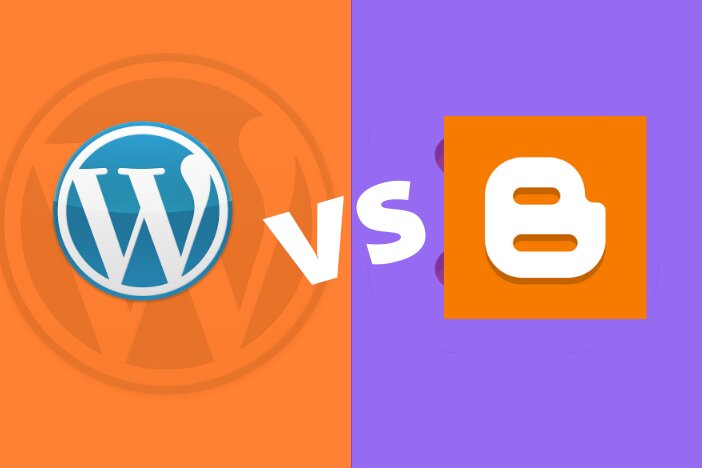Blogger vs WordPress is one debate that will last for a very long time.
The obvious reasons for it are limitless.
- Wanting to blog on a budget
- Lack of technical know-how
- Ease of use
- Information divide
The list goes on…
The above are some of the premises that have been fueling the raging supremacy battle between Blogger vs WordPress.
However, if you have ever thought of starting a blog, you must have noticed that there are a plethora of blogging platforms to choose from.
In order to give you a feel of what it’s like, here are some examples of blogging platforms:
And a host of others…
Due to the abundance of all of these different blogging platforms, it has made a lot of newbies keep asking themselves which blogging platform is better between Blogger and WordPress.
This argument can be very perplexing at times. Many users prefer Blogger reason being that it has fewer technical problems, while others prefer WordPress because it has more power and functionality.
Whenever anyone asks which platform they should begin with, the response will always be something like this:
Start with WordPress.com for a while, then move on to the self-hosted WordPress site once you’ve gotten the grasp of it.
Conversely, you can use Blogger.com as your starting point for blogging, but don’t rely on it for so long.
In the meantime, we’ve given a thorough comparison between Blogger vs WordPress in this post, and we’ll clarify which one is better for some circumstances and why.
Quick Comparison
| Blogger | WordPress | Winner | |
| 1. Ease of Use | Less hops to pass through make creating a blog very easy | Has a lot of learning curve to pass through before getting things started | Blogger |
| 2. Security | With Blogger, you are at the mercy of Google | Comes with lots of security plugins with which you can use to secure your site | WordPress |
| 3. Support | Owned by Google and still does not provide on-going support | Has a very vibrant community that are ready to answer any question you may have | WordPress |
| 4. Search Engine Optimization | No plugins available, leaving to just on-page SEO | Lots of plugins which can help you optimize your website content for the search engines | WordPress |
| 5. Pricing | Comes totally free, except you want to use a custom domain | Domain, hosting, premium themes and plugins are some of the things to spend money on if you don’t want with the basic WordPress.com | Blogger |
| 6. Templates | Only few templates available for use, which is already in use by thousands of other bloggers | There is no limit to what you can achieve with a WordPress blog. At least , that is your perk for choosing the WordPress blogging platform | WordPress |
| 7. Long Term | No significant update for long while. It can also be shut down by Google without warning | An open source software with a thriving community of developers contributing tirelessly to sustain the platform | WordPress |
| 8. Ease of Migration | With Blogger, you are stuck to their platform | Don’t like where you are at the moment? You can easily migrate to any other host or CMS platform without stress | WordPress |
| 9. Ownership | Google owns Blogger and there is nothing you can do about it | On WordPress, you own everything | WordPress |
Blogger vs WordPress – A Detailed Comparison
We shall do well to compare both Blogger and WordPress side by side in this post.
By the end of this post, you should be able to decide which blogging platform to go with.
1. Ease of Use
The majority of people who choose to start a blog aren’t web designers.
They may run a small enterprise or a non-profit, or would like to share their opinions with the global economy, or want to try something different. The bottom line is that they may not have hands-on experience when it comes to building websites from scratch.
They’ll require an easy-to-use blogging site to get their message out there.
Both Blogger and WordPress are well-known for their user-friendliness. Blogger, on the other hand, is really in a class by itself when it applies to quick and easy blog setup.
Blogger
Blogger is an easy blogging site that allows you to set up a blog in a couple of minutes. To get going, you’ll require a Google account.
Sign up for a Blogger account using your Google account by going to the Blogger homepage. After that, select the option that reads “Create Your Blog.” After that, you can initiate a display name, select a blog title, a blog address, and choose a theme.

Your blog will be ready after you’ve completed these procedures. Then, you can customize your blog’s settings, change the theme, and add new posts.
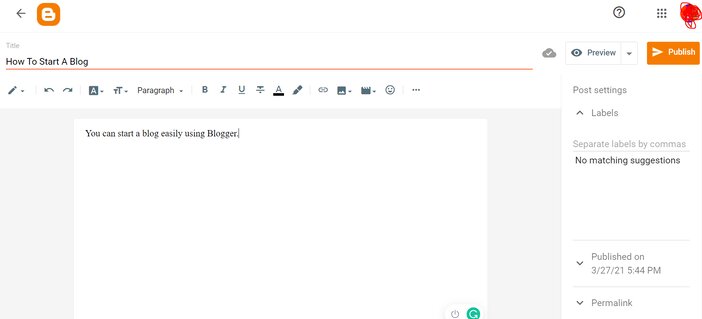
The configuration method is straightforward. Customizing the style, on the other hand, is a lot more challenging. HTML knowledge is needed to modify the design of your blog in Blogger.
WordPress
WordPress performs excellently in this area as well. Since the platform is so common, some of the best web hosts will let you set it up in just a few clicks, enabling you to start blogging immediately.
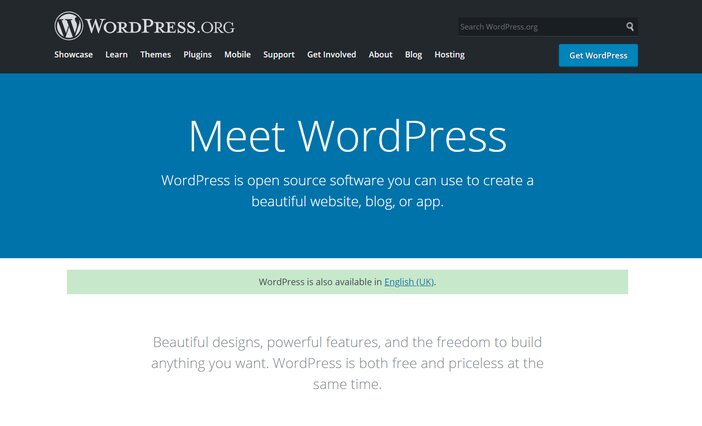
After you’ve installed WordPress, you’ll find that its dashboard has a lot more options than Blogger. Overall, this is a positive thing because it gives you more choices for producing content and modifying your website.
Consequently, with so many options, learning how to utilize WordPress to its maximum potential can take longer.
Using the user-friendly block editor, you can quickly add text material, photos, videos, as well as other content to your WordPress posts and pages.
Apart from the block editor, WordPress offers drag-and-drop page builders that allow you to completely customize your site.
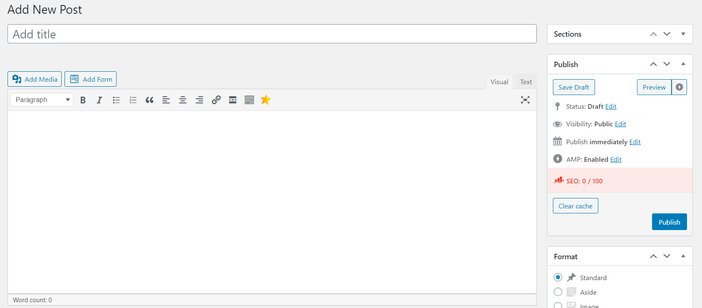
To be sure, we’re not suggesting that WordPress is difficult to work with. Blogging, on the other hand, doesn’t get any better than with Blogger.
Winner
In this first round of our Blogger vs WordPress comparison, the clear winner in terms of ease of use goes to Blogger.
2. Security
Till you stumble into a security problem, managing a website will still feel like riding a roller coaster. Hackers may attempt to gain control of your website and use a DDoS (Distributed Denial-of-Service) attack to bring it down, or even lock you out entirely.
To avoid these scenarios, choose a platform with a proven track record of security.
Blogger
When you use Blogger, you get the added benefit of Google’s stable and reliable website. You won’t have to worry about handling the resources on your server, protecting your blog, or making backups.
However, if Blogger goes down, your site, along with all the other pages hosted on Blogger, will go down as well. When the Blogger server is down, there isn’t anything you can do to recover your blog.
Another drawback to using Blogger is that, since it is a closed network, you are unable to alter the default security settings.
WordPress
On the other hand, because WordPress is such a popular target for hackers, you’re more vulnerable. This CMS, on the other hand, gives you a variety of options for safeguarding your blog.
Simply put, this implies you’re in control of your website’s security and backups.
The excellent thing is that there are a plethora of WordPress plugins available to assist you. Sucuri Security is a plugin that makes this really easy.
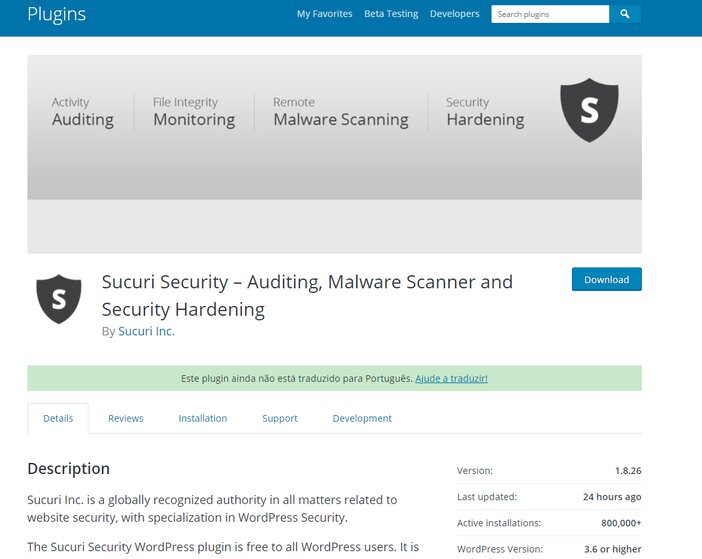
While VaultPress or UpdraftPlus can be used to backup your website.
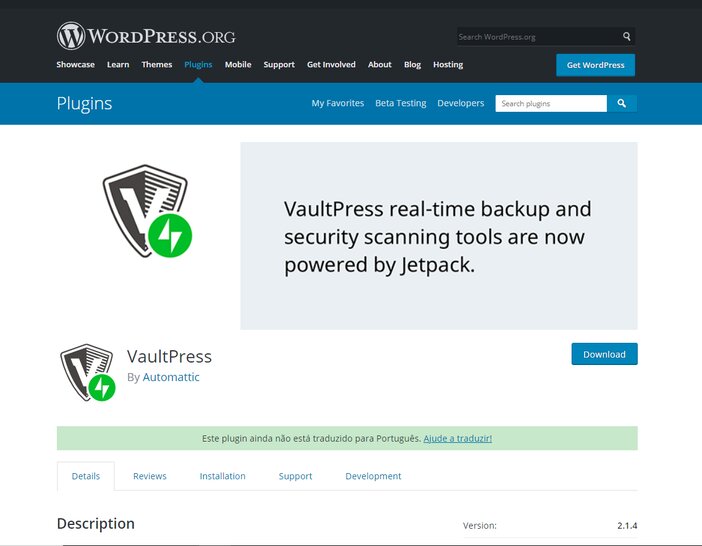
The notion is that the security of your WordPress website is entirely up to you. You shouldn’t have any security problems if you’re willing to roll up your sleeves and do the hard work involved in securing your site.
Winner
As far as the security of your website goes WordPress stands tall and it is therefore declared the winner in this category.
3. Support
It can be difficult to start a blog on a new site. As a consequence, it’s vital to have the proper level of support in a position to assist you to quickly build a decent website.
It’s also important to consider the level of help you get, as problems can arise at any time. And if you don’t have technical knowledge, you’ll find yourself in the middle of the desert, which might damage your blog and its earning potential.
Let’s compare the support features of the WordPress and Blogger platforms.
Blogger
Blogger has a minimal amount of support. They have some very simple documentation and a discussion page for users. Your options for help are extremely small.
You can find support guides by clicking the little question mark icon located at the top left of your Blogger dashboard.
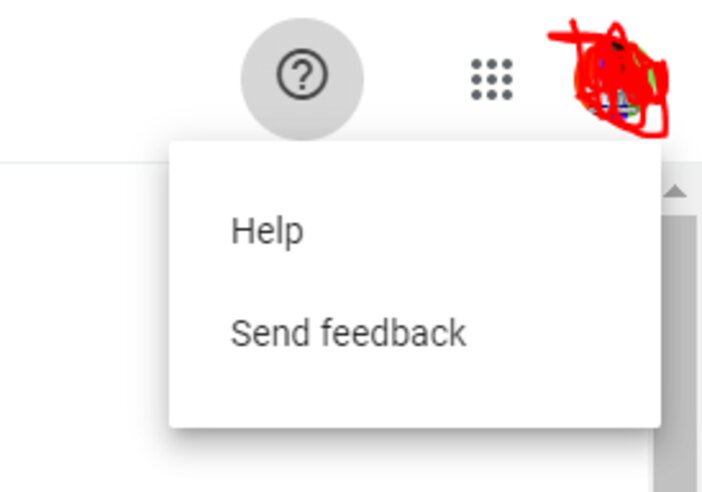
After that, select “Help” option. It will bring you to the support section in Blogger.
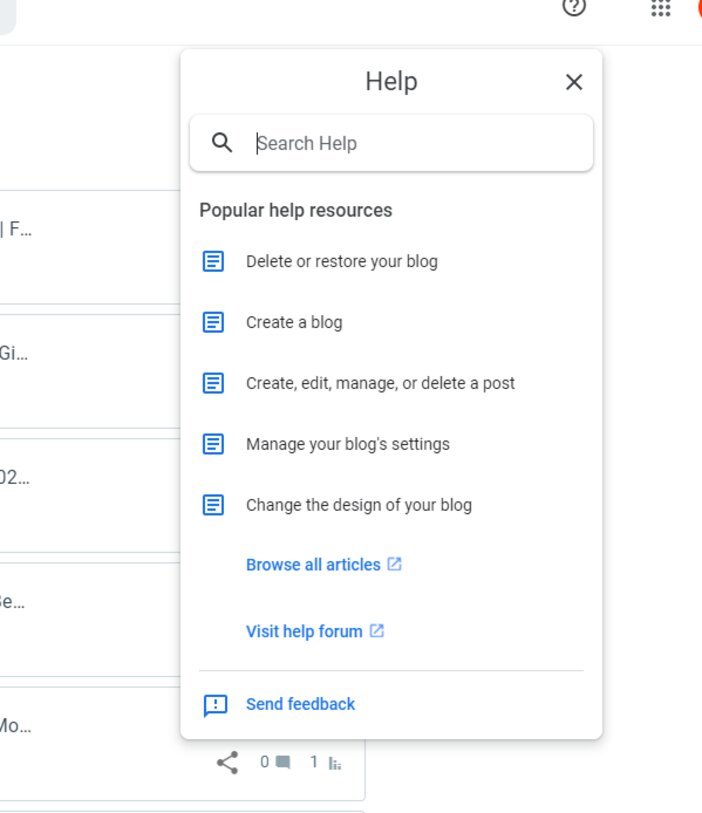
Google does not offer one-on-one support to Blogger users because it is a free publishing site.
WordPress
WordPress, unlike Blogger, does not have a dedicated support staff. It does, indeed, have the largest group of users worldwide because it is an open-source CMS.
That implies that you can go to the WordPress help center and find an official digital manual from the WordPress developers that includes everything from downloading the app to making custom plugins.
The WordPress network is large, assisting users all over the world by contributing to the software’s development and sharing information. Questions, responses, and documents can all be found in the forums.
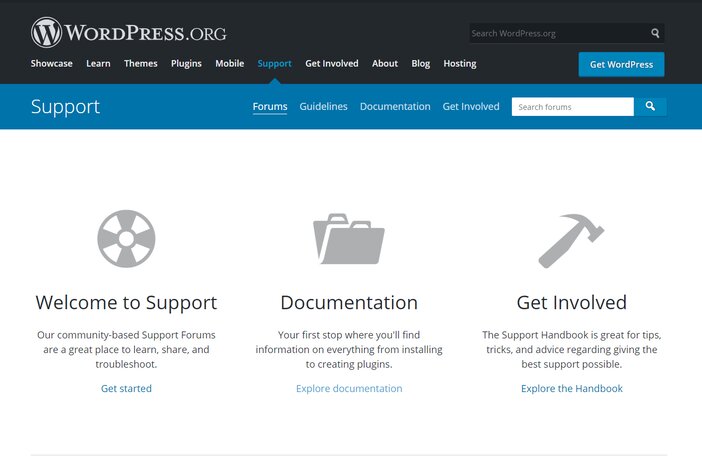
Aside from that, WordPress developers and writers, as well as community members, have generated tens of thousands of online tutorials.
These blogs also use simpler language and include a comprehensive step-by-step guide on how to get started.
If you buy a premium theme or tool, WordPress help shines even brighter.
Visual tutorials and documentation, as well as one-on-one email or phone support, can be provided depending on the theme. This alone can also justify the cost of a premium theme.
Winner
Without prejudice, the clear winner, in this case, is WordPress.
4. Search Engine Optimization (SEO)
You can configure your blog for search engines in a variety of ways.
You may concentrate on technical aspects such as load time or on-page SEO elements such as keywords, Meta descriptions, links, and images.
To optimize both types of SEO, you’ll need a system with the built-in feature and add-ons you’ll need to get the most out of your efforts.
Let’s take a look at the differences between Blogger and WordPress to see which is best for your website in terms of SEO.
Blogger
Since Blogger lacks plugins, you won’t be able to automate SEO like you can with WordPress.
Blogger is perfect for somebody who is either familiar with SEO techniques or is willing to learn more.
Customizing page names, permalinks, image alt text, keywords, headers, hide some pages from search, and more are some of the ways with which you can use to properly customize your content in Blogger.
WordPress
So, you don’t know anything about SEO?
How then do you intend to boost your website’s ranking?
Don’t worry, WordPress has simplified SEO.
In reality, you’ll love how easy it is to handle SEO on your blog without any prior experience.
You get all the SEO features you’d expect from WordPress, plus a lot more.
You can not only add headings, image alt-text, custom URLs, and Meta descriptions to your pages and blogs, however, you can also keep total control over every aspect of your code to ensure it’s optimized.
If you don’t know how to code or aren’t familiar with SEO best standards, you can use its plugin directory or third-party sites to download some of the most common and advanced SEO software.
Most WordPress SEO plugins also suggest ways to improve your Meta descriptions, use keywords, create readable text and image alt text, and add internal links, among other things.
These plugins can also help you improve your technical SEO by caching your site, optimizing your images, integrating with Google Analytics, generating and updating XML sitemaps in one click, and more.
Winner
WordPress wins in this category.
5. Pricing
You wouldn’t want your blog to become a big financial drain. Similarly, you don’t want to get so fixated on “free” that you forget about developing your blog.
Funding is a vital thing to consider when selecting a blog platform, whether you’re just starting out or have been blogging for years.
It’s essential to consider how much your blogging site would cost you both financially and in terms of possibilities.
Now let us look at the costs of starting and maintaining a blog on Blogger versus WordPress.
Blogger
Blogger is a free blogging platform that includes all of the tools you’ll need to quickly create and publish a blog.
That is, you will not pay for themes, an SSL license, or web hosting.
If you’re cool with using a BlogSpot subdomain, you wouldn’t even need to pay for domain registration. Your URL would be more like www.myawesomewebsite.blogspot.com in that case.
Blogger is always free, but it is also always restricted to its default features, which ensures that a blog hosted on Blogger is not as customizable as one of those hosted on WordPress.com.
If you want a personalized domain for your website, you’ll have to pay anywhere between $10 -$12 with Blogger. You may purchase a domain from Google directly or from a third-party registrar such as Name Cheap, Namesilo, or GoDaddy.
Based on the retailer, a custom domain will cost anywhere from $8 to $12 per year.
Blogger differs from other free sites such as WordPress.com in that it does not display advertisements on your free site. As a result, many new bloggers chose to start their blogs on the Blogger platform.
WordPress
WordPress.com, on the other hand, is free, but it tries its best to upsell you a custom domain, which has to be bought from one of its preferred providers. Furthermore, their domain names are frequently overpriced.
There are three plans available on the WordPress.com platform: a free basic plan, a premium plan of $99, and a $299 business plan.
Despite the fact that WordPress is free-to-use software, however, since WordPress.org does not provide you with both hosting and domain, you’ll have to pay for hosting and a domain name independently.
You can also buy a range of tools, plugins, and premium themes to help you broaden the functionality of your site and develop your business.
These services, on the other hand, are all optional, so if you want to create your site with WordPress, you can invest as little or as much as you want.
As a result of these factors, maintaining and creating a WordPress platform will cost anything from a couple of dollars to several thousand dollars.
Fortunately, making a blog on Blogger is on the lower end of the trajectory. Bluehost, for instance, will host a blog with a free domain on a shared server for as cheap as $3 per month.
Winner
Blogger has done a very good job to edge out WordPress in this category. You can just turn on your internet-connected computer device and fire up blogger.com, then you have a totally free blog without paying a dime.
6. Templates
The majority of website creation platforms include pre-designed templates.
Not having to start from scratch is a huge advantage — this just not only speeds up the setup process but also allows anyone to build a beautiful blog without the help of designers or developers.
Both WordPress and Blogger offer a variety of free and paid themes. Let’s see how Blogger and WordPress compare in terms of themes and templates.
Blogger
Blogger only has a small number of templates to choose from. These are really basic templates that have been used on thousands of other blogs.
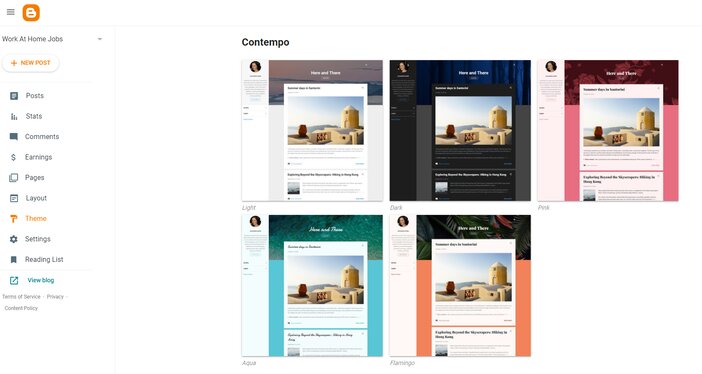
Using Blogger’s built-in software, you can change the colors and style of these templates. You cannot, however, build or change your own models.
Premium Blogger themes are also available from a variety of Blogger developers as well as theme marketplaces like ThemeForest.
These templates are typically priced around $20 and $30, so they aren’t exorbitantly expensive As a result, no matter what kind of blogging you do, you’ll be able to find a Blogger theme that fits your needs.
The limited number of templates and customization possibilities on Blogger makes the design process quick and simple, but it can also be frustrating.
You’ll need a site with a wider range of more customizable templates to create a blog that represents your unique brand identity.
Blogger is severely lacking in terms of design options due to its restricted selection of themes, minimal customization options, and lack of layout options.
WordPress
When it gets down to themes, WordPress has a huge selection.
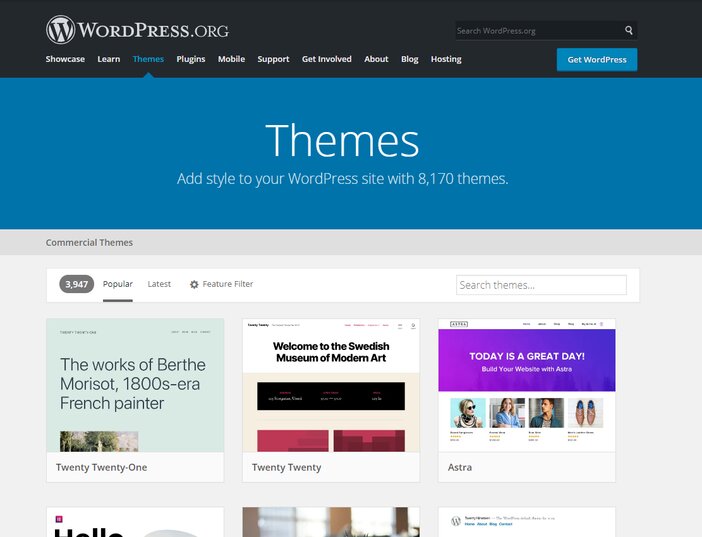
There are approximately 8,000 free themes in the official WordPress website repository. Hundreds more are available for free or for a fee on third-party marketplaces such as Themify, Themeforest, Elegant Themes, and Astra Themes.
In reality, over 30,000 WordPress themes are estimated to exist.
If you want to use a free WordPress theme, you can either choose one from the WordPress repository or from a trustworthy developer.
The themes in the WordPress repository have gone through a rigorous review process and you’ll find that they’re safe, coded correctly, and fully functional. With thousands of free themes to choose from, you’re sure to find one that fits your needs.
Premium themes are usually more expensive than Blogger themes, with prices varying from $30 to $100. The best WordPress themes, on the other hand, usually provide outstanding features and functionalities, as well as detailed documentation to assist you in your design process.
For just about any sort of website you might imagine, there is a WordPress theme for it. You’ll find more than enough high-quality themes that are simple to change and customize, no matter what your website is about.
Winner
Do we also need to declare a winner here? WordPress totally leads in this regard.
7. Long Term
What decides just how far you can take your website is the future of your blogging platform of choice. What do you think would happen to your blog in two or three years or even five years from now?
Blogger
Blogger has never had any significant changes in a long time. Common Google services like Google Adsense for feeds, Google+, Google Reader, and FeedBurner have all been phased out over the years.
Blogger’s future is in Google’s hands, and they have the authority to shut it down at any time. As a result, Google’s decisions have an effect on the future of your site.
WordPress
WordPress is open-source software, this implies that it is not reliant on a single corporation or entity for its continued existence. It is run by a group of programmers and users.
WordPress is the most commonly used content management system on the globe (CMS). Thousands of companies all over the world depend on it. WordPress has a positive and reassuring prospect.
Winner
WordPress all the way!
8. Ease of Migration
Despite the fact that the aim of this post is to assist you in selecting the best blogging platform so you don’t have to move your site around, Do bear in mind that nobody is above errors and mistakes.
As a result, it’s critical to determine whether or not the blogging platform of your choice offers safe options for switching to another platform.
Blogger
Transferring any site from Blogger to another platform is a difficult process.
You also run the risk of losing subscribers, SEO (search engine rankings), and followers during or after the switch.
Despite the fact that Blogger makes it possible for you to export your content, your data will remain on Google’s servers for an indefinite period of time.
WordPress
You can switch your WordPress site to any location you want with ease and with the push of a button.
You can easily transfer your WordPress site to a different server, modify the domain name, or even switch to another content management system without losing any of your users, followers, or search engine rankings.
Winner
Please let’s put our hands together for WordPress for coming out top on this one.
9. Ownership
Whoever owns your blog is obviously relevant, as that gives you full control over it.
Another important factor to consider when selecting a website is the possession of your website.
When you own your blog outright, you have complete control over how to make money with it, when to shut it down, and how to manage it.
Blogger
Blogger is a blogging service offered by Google, a tech powerhouse. It is secure, dependable, and packed with ample features to allow you to quickly publish your content on the internet.
Only keep in mind that you do not own it. Google, on the other hand, does.
Google operates this service and reserves the right to terminate it or your connection to it at any time. That’s the same way that LinkedIn, Facebook, YouTube, Twitter, Instagram, and TikTok could suspend or block users without notice.
Sometimes even, you don’t even have to do something wrong, if Google chooses to quit supporting Blogger, you will lose your blog.
Google has a tradition of abruptly abandoning programs. Feedburner is a great example of this.
WordPress
Your WordPress account is hosted by a WordPress hosting company (i.e. a web host). You have complete control of how long your blog will be active. It will not be taken down without warning.
You’re also not restricted to a single web host. If you want to, you can change web hosts at any time. Blogger does not permit you to take your blog somewhere other than Blogger.
You can manage what information you post, copy data anywhere you desire, and migrate your entire blog using WordPress.
Winner
WordPress reigns supreme in this category.
FAQs
What is Blogger?
Pyra Labs, which was purchased by Google in 2003, developed Blogger.
It’s a blogging platform located in the United States that allows for multi-user blogs with time-stamped posts.
Google hosts the posts, which can be accessed via a subdomain of blogspot.com.
By leveraging DNS facilities to connect a domain to Google’s servers, blogs can also be accessed from a unique domain owned by the user (like www.yourawesomedomain.com).
A single account can contain up to 100 blogs.
Blogger is a prominent platform for newbies to build simple blogs due to its simplicity in terms of use and low costs.
What is WordPress?
WordPress is a self-publishing website that is widely used for blogging and other projects.
This is also a free open source program that makes it simple to build a website, blog, or online store. WordPress was established in 2003 and now powers as many as 38% of all sites on the internet.
The WordPress software is available for free download and uses on as many websites as you like.
WordPress is surrounded by an awesome community that provides access to and support for a wide range of resources, plugins, and themes.
This allows WordPress users to build any sort of website they want, with unique designs, features, and functionalities customized to each project.
What is the difference between Blogger and BlogSpot?
Let’s clarify any misunderstandings about the words Blogger and BlogSpot right now.
Blogger is a free blogging site, and BlogSpot is a free domain registration program.
Both are Google products, and they’re used in combination on the Blogger site.
If you type blogspot.com into your browser, you’ll be taken to blogger.com.
Once you start a blog on Blogger, you’ll be granted a BlogSpot domain by default. However, you do not need to use the BlogSpot domain; you can use a personalized domain instead.
To conclude, your blog is hosted on Google’s Blogger site, with a corresponding BlogSpot domain.
What is a WordPress theme?
A WordPress theme is a group of template files and a style sheet that changes the design of a website. A website’s design is controlled by a theme.
Blogger vs WordPress – which is better?
Blogger and WordPress are two common blogging sites. However, because you must choose one, it is important to consider the intent of your blog.
If your aim is to create a personal blog and tell your story, or simply to vlog, a basic platform like Blogger is a good choice.
However, if you want to create a reputable blog that can earn money, you’ll need a website like WordPress.
You can make money with WordPress by building a subscription account, adding a shop to your blog, and adding loads of marketing resources to your blog as well.
Overall Winner
Now that you’ve learned about the various blogging sites, you must decide which one is right for you.
First and foremost, WordPress comes out on top in this comparison and therefore declared the overall winner.
If you however have a second thought about using WordPress as a blogging site, here are our opinion on the topic.
Blogger is suitable for new and hobby bloggers alike. You will get a clear picture of what blogging is all about by starting for free.
However, before you go too far with your blogging journey, think about moving to WordPress.
